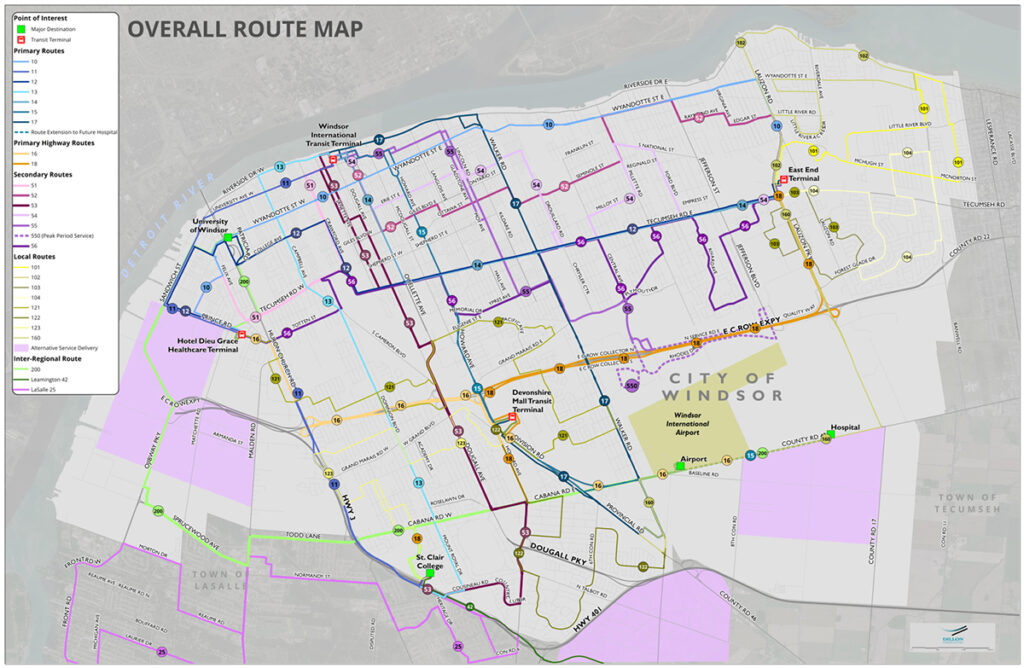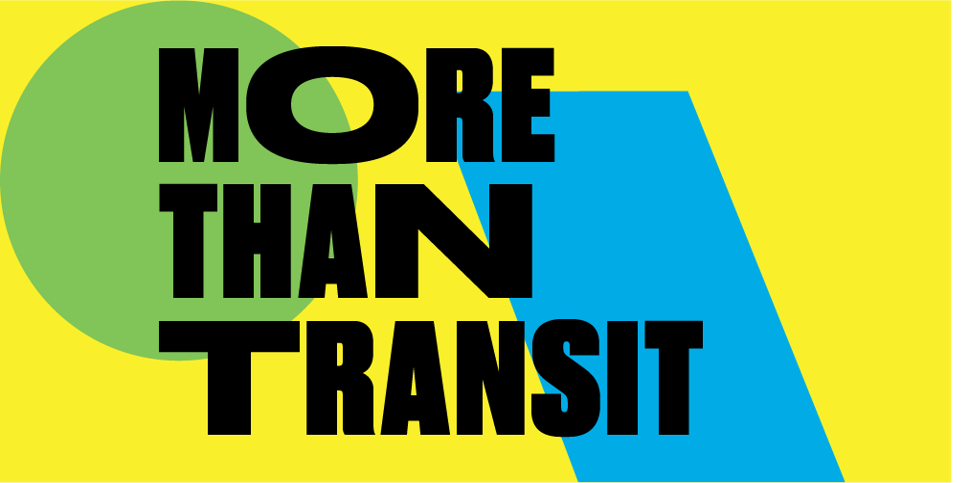Projects
Transit Windsor Service Review – Windsor, ON
Dillon was retained by the City of Windsor in the Spring of 2018 to assist with a comprehensive review of Transit Windsor and the development of a transit master plan. The primary objective of the project was to position Transit Windsor to meet the opportunities and challenges of the coming years, and successfully serve the community with an effective and efficient transit system that exceeds customer expectations.
Background work at the start of the project included a detailed performance assessment of the current service, a peer review comparison with other transit systems, and a community telephone survey of 700 residents to help understand transit attitudes of both users and non-users throughout the community. In addition, an analysis of travel patterns in the community was undertaken using the StreetLight Data platform that brings together anonymized location-based data from mobile devices to help identify which origin-destination connections were well served by transit and which were not. This is a much quicker and less expensive way to assess travel patterns compared with a traditional origin-destination survey approach. This preliminary work, combined with some initial community engagement, resulting in the identification of new roles, mission, vision, strategic priorities and related goals, and updated service guidelines.

A complete rethink of the Transit Windsor route network was undertaken to address the current challenges of long transit travel times between key destinations in the community and limited service during many time periods. A plan incorporating a set of primary routes providing frequent direct service on a core grid of streets throughout the community was developed. This was supported by a series of secondary routes filling in links between the primary grid of routes and local routes connecting neighbourhoods with the closest transit focal point. Areas more suited to an alternative service delivery approach such as on-demand transit were identified to provide service where the operation of conventional transit service is difficult to justify. In addition to the new route network, the transit master plan includes recommendations for bus stops and terminals and related infrastructure, a transit priority program, fleet requirements and the resulting garage implications, and an implementation and financial plan.

Community engagement was a key component of the comprehensive service review. Engagement early in the project included a series of meetings with key stakeholders, a series of pop-up community meetings to explain the project, and an on-line survey similar to the community telephone survey that received more than 2,000 responses. These activities were promoted through a special project brand, “More Than Transit”, and supported by social media blasts, shelter ads, on-bus ads, and signage at key transit terminals. The components of the draft Transit Master Plan could be considered by the community at an open house and panel discussion event, additional pop-up open house activities, and through an on-line platform called Social Pinpoint that allowed interested people to review and comment on the route network directly on a map, and to answer survey questions about the components of the plan. Windsor City Council unanimously approved the new Transit Master Plan on January 20, 2020.
Project Details
Project Partner: City of Windsor
Business Unit: Community Planning & Infrastructure
Service Offering: Integrated Mobility